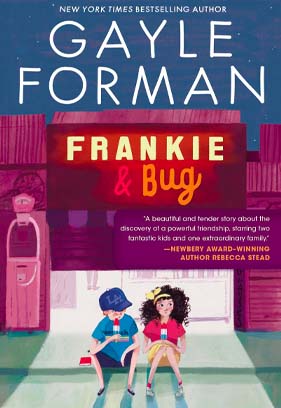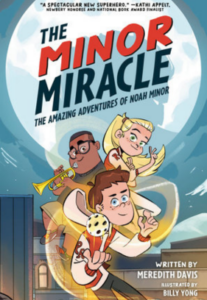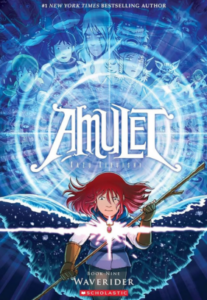Bug’s mom is loving and focused on keeping Bug and Danny safe. In fact, she sets up a system of people (including neighbors in their apartment building and a lifeguard at the local beach) who keep a close eye on the kids.
The Contreras family members are all close with their upstairs neighbor (Philip) and the Hungarian woman who lives downstairs (Hedvig). Those neighbors are complicated individuals, but they step up to help the kids, wisely guiding and protecting them.
It’s through both Mom’s and Philip’s wise encouragements that Bug is able to eventually find common ground with Frankie. Bug and Frankie are very different, but they begin to find common ground and eventually become the best of friends.
Mom also talks to Bug about prejudice in the world—something that she, Bug and Danny are faced with because of Danny’s darker skin color.
“Everyone is prejudiced, Bug. It’s what you do with the prejudices that matters,” Mom tells her daughter. “You can either give in to prejudice and treat people badly just because they’re different from you. Or you can shine a light on it, to understand how arbitrary it all is and judge people for who they are, not what they are.”
Bug finds out that Philip—a piano teacher—is gay after he’s attacked while coming out of a gay bar. This horrible event opens Bug’s eyes to several things, including the concept that homophobia and racism are very much a part of her world. Bug begins noticing other things, too, and is exposed to the idea that a pink-haired person she’s met on the local boardwalk is transsexual.
[Spoiler Warning] We later find out that Frankie is actually a girl who dresses and maintains the persona of a boy, something his father back home in Ohio is adamantly opposed to. His summer in California was designed as a way for Frankie to “get it out of his system.”
Those elements—the idea that people have the right to choose their gender and sexuality and the fact that others are often opposed to such things—become the core of this story. It’s implied that people of faith and the police all trend toward having racist and bigoted reactions.











